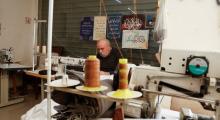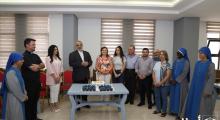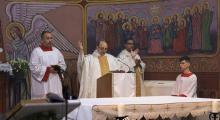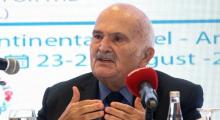Issued by the Catholic Center for Studies and Media - Jordan. Editor-in-chief Fr. Rif'at Bader - موقع أبونا abouna.org
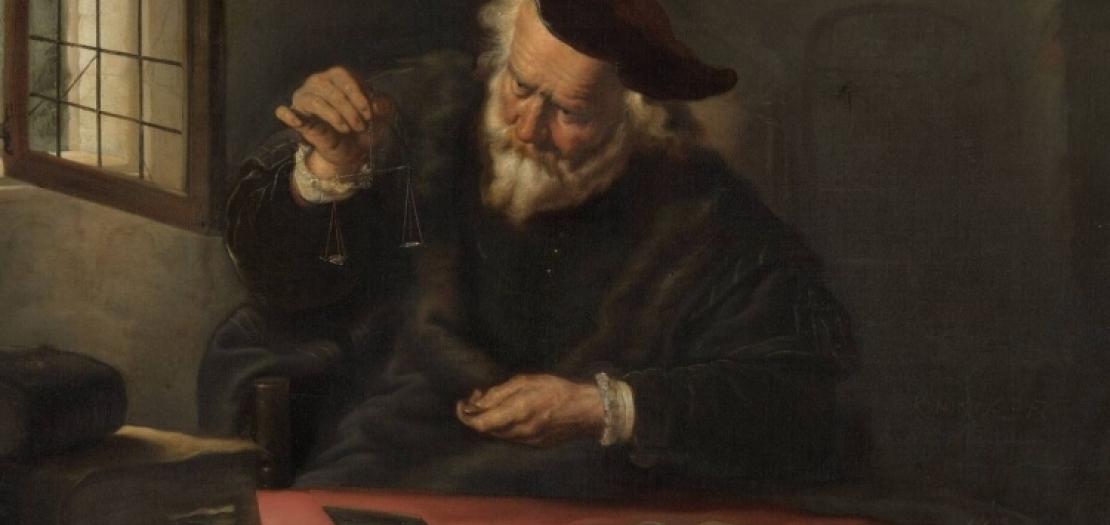
Following is the text of the meditation by His Beatitude Cardinal Pierbattiasta Pizzaballa, Latin Patriarch of Jerusalem, on the 18th Sunday of Ordinary time, dated August 3, 2025:
There are elements in today’s Gospel (Luke 12:13-21) that remind us of the episode of Martha and Mary that we heard two Sundays ago.
There was a pair of sisters, here a pair of brothers. There was a quarrel between the sisters, here it is about the inheritance. In both passages, one of the two goes to Jesus to ask him to say something to the other in order to resolve the matter. And in both cases, Jesus gets out of the contingent problem, goes beyond it and brings the interlocutor back to the essentials, to what is really missing.
In today’s passage, Jesus’ invitation is introduced by a very strong expression: “Take care...,” (Luke 12:15) which means beware of something that is really life-threatening, a serious danger.
But you must not only be careful, you must also “to guard against.” (Luke 12:15) The one thing that Jesus says is that you must keep away from greed.
Jesus does not say to keep away from money, but from covetousness, or rather, from all covetousness, that is, from all idolatry, from all attachment of the heart, from the illusion that the possession of things can be the source of life.
And to explain this, Jesus tells a parable. (Luke 12:16-20)
The parable begins by saying that a rich man’s land had yielded a rich harvest (“There was a rich man whose land produced a bountiful harvest.” (Luke 12:16) So there was much to thank God for and much to share with the brothers.
But none of this happens.
What he possesses is not received as a gift; it does not generate gratitude or fellowship. Quite the opposite.
The man talks, but he talks to himself and has no interlocutors other than himself. The parable emphasizes this monolog twice (Luke 12:17, 19) to tell of a man who is completely absorbed in his own thoughts and closed off.
He talks about himself only, or rather about what he owns, about his things: his harvest, his provisions, his possessions, his soul. He talks about his plans and about how he can preserve what is his (“Now as for you, you have so many good things stored up for many years, rest, eat, drink, be merry!” (Luke 12:19)
But something happens at this point.
God speaks to him, intervenes in his monolog and tells him something different from what he has always told himself. Something shocking.
He tells him that what belongs to him is not really his: “the things you have prepared, to whom will they belong?” (Luke 12:20)
Everything he thought belonged to him will pass to others, and then to others still. Everything he had accumulated is not a fortune that can withstand death, that gives eternal life and that he can take with him.
The parable concludes with a reference to a different kind of wealth, a wealth that can come before God instead “Thus will it be for the one who stores up treasure for himself but is not rich in what matters to God.” (Luke 12:21)
Jesus does not say what this wealth is, just as he did not tell Martha what the good thing is that will not be taken away. (Luke 10:42)
Prayer, life, is nothing other than a constant search for what is essential, what we really need, what enriches us before God.
So, to heal fraternal relationships, it is not enough to divide the inheritance equally, but to discover the true wealth, which is precisely the brother, the sister, who stands before you and for whom you only need to say thank you.
“Thank you” is the word that only a heart healed of covetousness can utter.
+ Pierbattista
 Jordan: Sister Samia Nassar elected as the new president of the Union of Religious Congregations
Jordan: Sister Samia Nassar elected as the new president of the Union of Religious Congregations  Ecumenical Group: The importance and meaning of Christians “remaining” in the land of Jesus, disfigured by terror
Ecumenical Group: The importance and meaning of Christians “remaining” in the land of Jesus, disfigured by terror 

